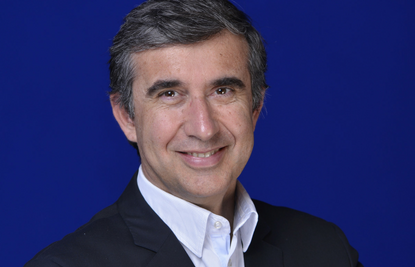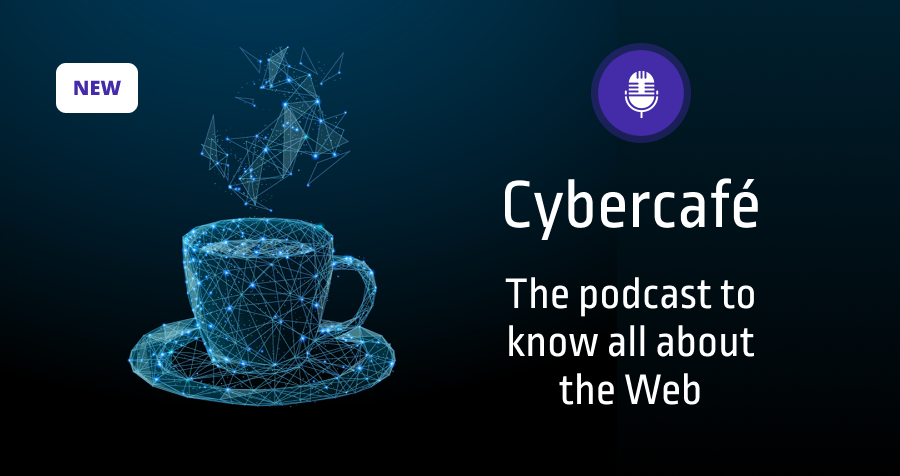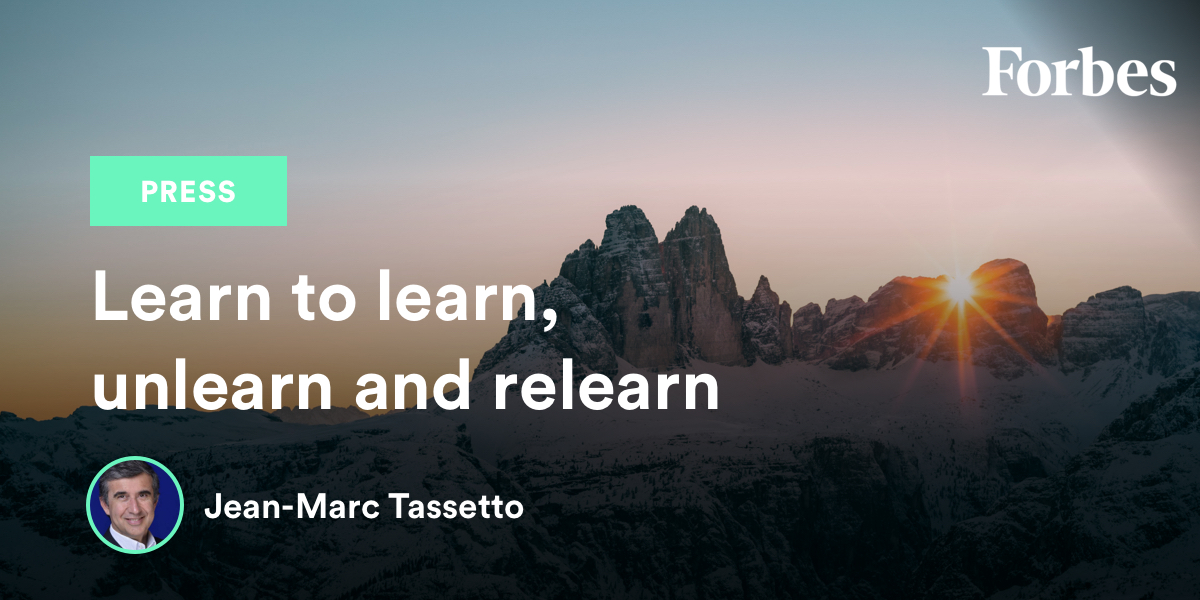Online learning: never again!
Press
 Jean-Marc Tassetto, Coorpacademy, online training
Jean-Marc Tassetto, Coorpacademy, online training
As the son of a school teacher with a passion for educational issues, a marketing professional and a geek who pursued part of his career at SFR (one of the major French mobile operators) and as the director of Google France, Jean-Marc Tassetto had a few arguments for entering the world of EdTech. His motto, along with the two other founders of Coorpacademy, was to revolutionize continuing education and online learning by freeing the will to learn. Here, we take a look at the history and the concept of Coorpacademy, his startup based at Lausanne’s EPFL, a bright star in the world of EdTech enjoying healthy growth and having just secured the largest round of funding in the sector of EdTech in Europe, €10 million.
Jean-François FIORINA : Tell us about your curriculum in a few words.
Jean-Marc Tassetto: I pursued my career at three large corporations: Danone, from product manager to head of marketing, then fourteen years in the telecom industry at SFR where I arrived in March 1997 to start a marketing department, just when engineers were starting to figure out it would be better to count customers rather than telephone poles! And then three years as the head of Google France, and finally the creation of an EdTech startup in July 2013, here in Lausanne on the campus of the Ecole Polytechnique, EPFL. I also did a stint as a professor at Sophia Antipolis (a science campus in the South of France), in the late 1980s.
Why leave the comfort of big corporations for the instability of startups?
Maybe there is some form of congruence in life, but there was a definite triggering factor: my encounter at Google’s headquarters in Mountain View in 2012 with a Stanford professor, Peter Norvig, Google’s scientific director.
Peter, in one of his famous flowered shirts, told me “I just taught a course to 165,000 students”. And I’m the son of a teacher and an affiliate professor at HEC business school in Paris, so that struck me. It was my first “wow effect”. The second one was when Peter continued, saying “at the end of the course, the 200 best weren’t Stanford students…”
So during the 11-hour flight back to Paris, I had time to think hard about what was going on. I had recently heard about MOOCs, Massive Open Online Courses: the digital revolution had just started impacting and disrupting education, especially academic teaching.
That was the trigger. With Arnauld, one of my two associates and co-founders who was at Google with me, we used to talk a lot about the need to train managers in the field of digital culture.
The people at Google were split into two categories: experts with very sharp knowledge, digitally savvy, and the rest of the company that didn’t really master the basics of the digital language. And if you don’t speak the language, you become withdrawn and it becomes harder for a company to transform.
We decided we would train hundreds of managers, thousands, even millions! Meeting our third associate and co-founder, Frédéric Bénichou, who went to HEC, has a degree in pharmacology and is a serial web entrepreneur, provided the last piece of momentum we needed.
How would you define an EdTech company?
EdTech is the contraction of Education and Technology. So it’s a company with a strong technological dimension. Coorpacademy, for example, is a startup where half of the staff are developers. They write code, in this case the code of our proprietary platform, not really for the pleasure of owning a platform.
We started with a very simple observation: the online learning platforms of the early 2000s were offering students an absolutely deplorable experience.
Even at Google, we were put through online learning sessions: fifty minutes glued to a computer screen, watching slides. We thought, never again! At the same time, web-oriented solutions were appearing. So we created an EdTech company focusing on continuing education and learning, hence its name, Coorpacademy.
We wrote our own pedagogical protocol so we didn’t have to endure LMS (Learning Management Systems) with the idea of shifting from a technological standpoint emanating from our customers to the learners’ point of view. With one key question: how can we increase learner engagement rates from 5% to over 60% in the corporate world, while respecting its rules. That’s what defines an EdTech company to me.
Why this market, why Switzerland, and why EPFL?
Early 2013, we decided to take that risk because we wanted to launch this project and because the business opportunity seemed huge.
The continuing education market worldwide is worth $150bn. It’s mostly classroom, with a little bit of online learning, probably under 10%. But with digitization, after 10%, it will be 20%, then 30% of that market that’s going to go digital.
Switzerland, because of EPFL. We looked for the best place to settle: Paris, London where we met the YouTube Education teams, Zurich, where Michel Benard, head of Google Education for Europe, told me to go to one place in Europe, the EPFL.
When I’m asked why I didn’t create Coorpacademy in France, I explain it by recounting my first day at EPFL:
- 10:00 / Meeting with researcher and professor Pierre Dillenbourg, head of MOOCs at EPFL, who showed us his research labs on pedagogy in the digital age and the age of human-machine interfaces.
- 12:00 / Meeting with the woman in charge of the installation of some 160 companies on the campus
- 15:00 / Meeting with Patrcik Aebischer, president of EPFL. For an hour and a half, we talked about MOOCs. His goal for 2013: reaching 1 million online learners. There are 1.4 million as of today.
- 17:00 / Visit of the offices
- 17:15 / Lease signed!
So, the EPFL first and foremost because it’s an ecosystem that fits our project perfectly:
- A well-known “university brand”
- 10,000 students on campus
- 4 online students
- Partner companies close by
- Students to recruit
- Investment funds
What’s your promise, your added value in terms of continuing education?
To re-engage learners and employees. Our key performance indicator is engagement rates, meaning the rate of actual learner activity on the platform: people who are not just connected to the platform but who have watched videos, posted comments, taken part in battles, helped their peers, answered questions, etc.
That engagement rate can be measured, that’s why companies choose to work with us. That’s our value proposition: to free the will to learn and re-engage learners within the corporate world that follows specific rules.
Who is your customer: the company, the individual, or both?
Both.
That’s what makes our CRM a little tricky. The company is the one that makes the decision (L’Oréal, TAG Heuer, GDF-Suez… Over 60 companies have chosen to work with us), whether it’s the CEO, the marketing department or HR. But we say, “we care about you, you are important to us and pay our bills, but our target, our objective ally, our main goal is the learner”. Because we come from Google, because I used to be in marketing for yogurt and detergent. At Google, they say “User first and the rest will follow”. Humbly, at Coorpacademy, we say “Learner first and the rest will follow”.
It’s so difficult to go out and move mountains that we decided to focus on a world where we know the rules really well.
We started out with 4 strong beliefs to build upon:
- #1: the most important thing in the world of business is flexibility.
I have to be able to pause at any time. We work for Chanel, L’Oréal, TAG Heuer, for the luxury industry. When a client walks into the boutique or the hotel, learners must be able to pause on their tablet or PC and finish their session later on their smartphone.
Flexibility also means short sessions.
- The second belief is highly personalized user journeys.
We all went through a unified protocol that probably has reached its limits, i.e. the same course taught the same way to all learners, followed by exercises and a test. We’re trying to reverse and individualize pedagogy.
- The third element is gamification, because this is the 21st century. For example, we included a battle feature on our platform. But I must say, the first time we pitched battles to Schneider Electric or Société Générale (one of France’s largest banks), we weren’t too overconfident!
- And the fourth belief is of course the whole collective aspect, which is destined to become more and more contributive by the way. We want learners to become contributors.
Those are our 4 basic beliefs.
How does it work? Companies come to you with their needs, and you offer both the content and its architecture?
By default, we invested all of our company’s seed money, €250,000, in a course on digital culture. It was our way of showing what we really believe, with this course on digital culture and its 1700 questions and 210 videos in French and English. It was a success, with over 50,000 paid learners.
After that, it’s the learners’ demand for this new approach that helped us. We customized courses for our clients on a variety of subjects: management, product management, the code of business conduct, the launch of the Renault Clio RS, training 20,000 sales representatives worldwide for TAG Heuer so that they could retake control over their product discourse … So we started to create courses.
And then, in the third phase, our platform is turning into a marketplace for courses where companies edit and share courses between themselves. At first, it was research professors who came to us. They could no longer bear the ponderousness of their organizations and of platforms such as Coursera. They asked us to edit courses on the Coorpacademy platform and to sell them. The same process happened with big editors such as Aufeminin.com and Capgemini Consulting that edited a course on the internet of things on our platform, or Société Générale on product management…
Now we need to initiate phase 4. Learners themselves will be able to edit their own content thanks to back office tools, and contribute to the entire platform. Our reference is Netflix.
Is there a demand for certification and recognition for individuals?
Not at the moment, no.
We give out badges on our platform and ad hoc certificates that really correspond to engagement levels: the learner took part in battles, answered well, etc.
Obviously, when a company needs to get its course certified, we work together with academic or university partners that can deliver the certificate. But so far, we’ve been working in a culture where the training is the certification.
You recently announced you had raised significant funding. Who is investing in EdTech these days?
Since 2015, there have been over 500 rounds of funding worldwide worth $5bn. So there are many actors involved. The big purchase that serves as a reference is that of Lynda.com, bought by LinkedIn, which was in turn purchased by Microsoft.
Many funds are interested in EdTech as it’s a very significant market, with European players among which our company with its corporate positioning. Our potential is at least European, maybe global. Our partner investors are three funds that are very close to the world of entrepreneurs: a Swiss investor, Debiopharm Investments, and two French funds, Nextstage and Serena Capital, which just joined us, with Philippe Hayat at its head.
What are investors looking for? A new Eldorado? Do they have a more social vision, seeing education as an important issue?
Let me give you a double answer.
First, they are looking for financial success. In November 2012, Forbes magazine put Salman Khan, whom you surely know through the Khan Academy, on its cover with the title “The next trillion dollar business”. That’s as much as the budget of the US Department of Education. So of course they are looking to multiply their investment, like MedTech and BioTech can offer. Lynda.com with its 4000 videos was purchased for $1.4bn by LinkedIn, the French company CrossKnowledge, with 5 times the turnover (€27M), was bought by Wiley, an American publisher.
So, the money is there, and in our case the uncertainty factor is smaller because we work in the corporate world. We aren’t asking companies to create new budget lines but to reallocate money. Our big clients have training budgets that range from 1.5 to 8% of their total payroll. Investors know that.
Of course, we were looking for smart money, meaning investors who are passionate about education. Thierry Mauvernay, the owner of Debiopharm laboratories, also owns a school in Switzerland; Nextstage is headed by Grégoire Senthiles who wrote a book on the third industrial revolution with professors; Philippe Hayat teaches at Sciences Po and ESSEC business schools, so of course, we were looking for that extra sense of purpose and meaning.
Should there be a French EdTech industry? Isn’t it too late?
You could consider there already is such an industry in France with France Université Numérique. I’m an optimist when it comes to France, and I believe that with that platform, France reacted very fast to big American projects like Coursera or EdX. And it’s more smartly done that in the days of Secam, the Concorde or the Minitel. And with our startups, as our own funding demonstrates since it’s one of the largest in Europe in our field, there is a French EdTech industry.
However, the digital transformation of middle schools, high schools and universities is much more difficult than for businesses. It’s easier in the corporate world, you know who owns the intellectual property, the technology is there, online learning is there, and the budgets already exist.
Original French Interview http://blog.educpros.fr/fiorina/tag/jean-marc-tassetto/


